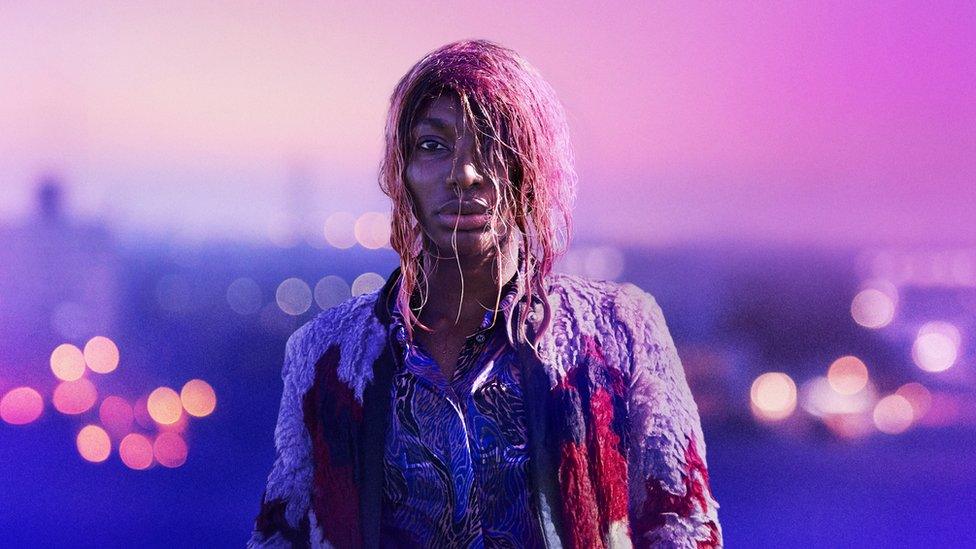Gypsy, Roma and Traveller performers 'under-represented' on-screen
- Published
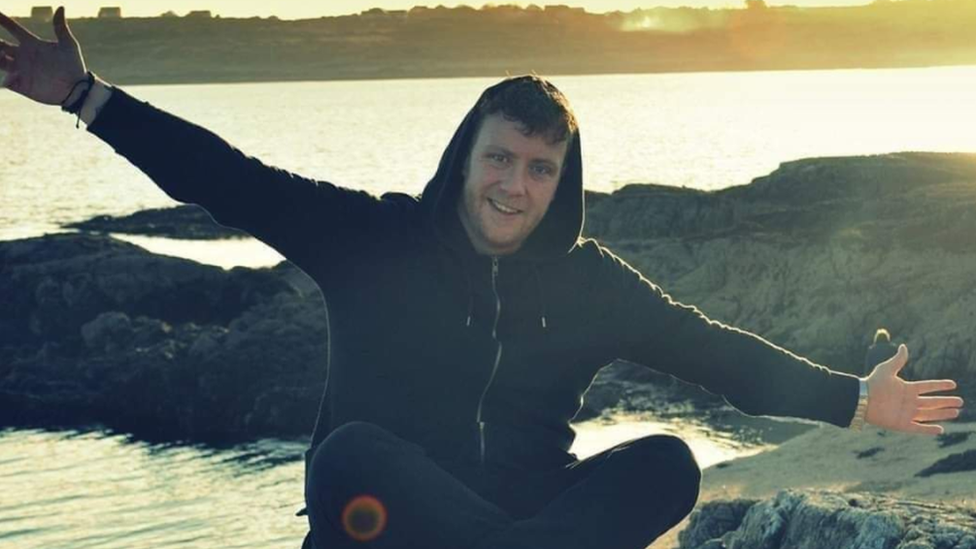
Martin Beanz Warde is a Traveller and stand-up comedian from Galway
Many people have seen a television programme about people from a Gypsy, Roma or Traveller background.
But the likelihood is that it was a documentary, rather than a drama or comedy.
On 8 April, actor's union Equity, which represents nearly 50,000 performers across the UK, is aiming to address a lack of on-screen and behind-the-camera representation by launching its Gypsy, Roma and Traveller (GRT) network.
In a statement on the launch of the network, Equity said while there were some good practices emerging, not enough was being done to promote GRT communities in drama.
The union said there was often "a lack of knowledge" about the communities, and not knowing "there are Gypsy Roma Traveller performers who could play an important part in the industry from writing to performing".
It said it was facing a "long-term body of work", part of which involves making it easier for production companies to identify actors and performers of GRT heritage.
'Usual tropes or stereotypes'
Martin 'Beanz' Warde, a Traveller and stand-up comedian from Galway, is among those calling for greater inclusivity.
While unable to take to the stage during the coronavirus pandemic he developed a following on TikTok and Facebook and has launched podcast the HazBeanz Show, recorded from the back of his campervan, external.
Mr Warde said the main issue for people from his background was that they were "underrepresented when it comes to representing ourselves in the media".
"We are always the focus of either an interview, or questioning or a documentary, or a couple of seconds just to have a pull quote about our community," he said.
Mr Warde has written a sitcom about life on a halting site for Travellers, but said for people from his background there is an issue when it comes to institutional knowledge of how to put it forward.
"If we did set up a production company, which is quite easy, we don't have the knowledge when it comes to sending in proposals, or making costings," he said.
Mr Warde noted that beyond the making of programmes, it was still not seen as unacceptable for a non-Traveller to play a Traveller in a television programme.
"In this day and age, I think having non-Travellers even portraying us should be kind of done away with," he said.
"You wouldn't get away with anybody representing any other ethnic group on TV, and using the usual tropes or stereotypes."
'Baby steps better than none'
Emaleigh Conn, who is from a Romani background, said her heritage drove her forward in her career.
The 21-year-old actor from Birmingham, who has worked to create inclusive theatre, is part of the group launching Equity's network.
She said speaking about her background had not always been easy.
"For a long time myself, my mum, we never would tell anyone we had any kind of heritage at all. We would kind of hide behind our whiteness," she told BBC News NI.
"We were quite lucky in that way. It wasn't until my mum started telling people at work that she was a Romani gypsy that I felt like I could tell people, my peers and friends. It was quite scary to do that."
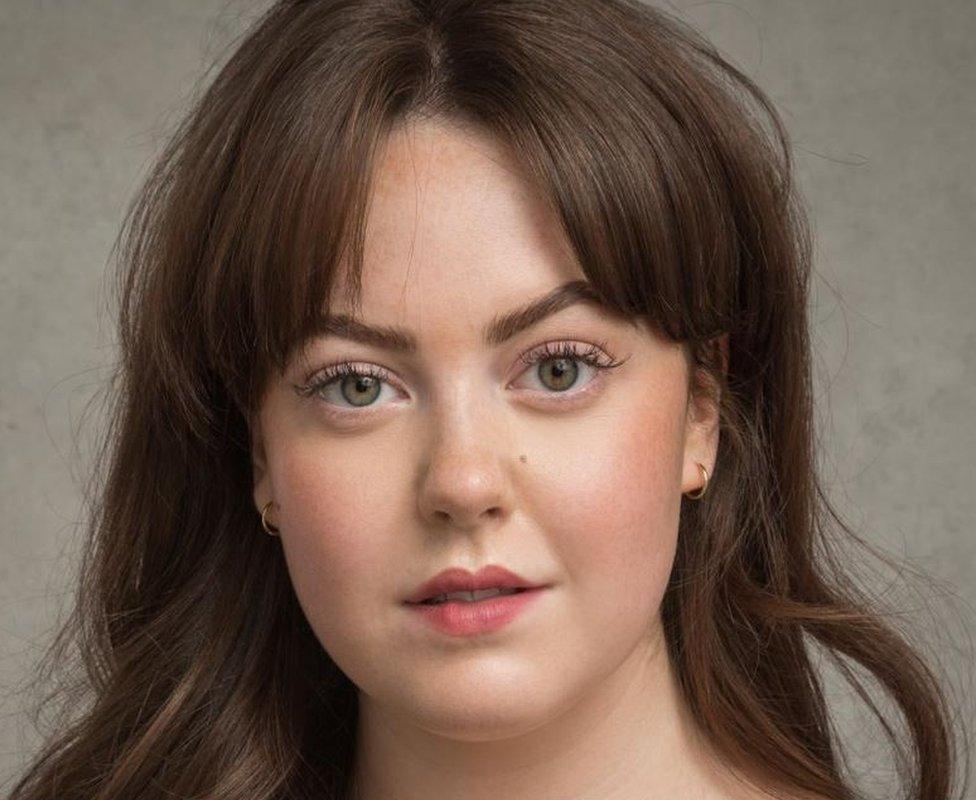
Emaleigh Conn is one of the founding members of Equity's Gypsy, Roma and Traveller Network
For Ms Conn, progress will be apparent when the portrayal of GRT roles moves away from stereotypes.
"It's very rare that there will be a GRT shopkeeper, or a GRT postman. It isn't really a reflection of GRT people, who have these regular, everyday lives," she said.
"I often say that baby steps are better than none, if you can't find a GRT actor to fill a GRT role," she said.
"If you absolutely cannot find one, and they are out there - there needs to be someone who is GRT around the table, who is helping with production, who is helping with writing, the direction, behind the scenes. Involved in actually putting that character on a page, or onto a stage, or TV screen."
'Cultural exclusion wounds'
The 2018 film Float Like a Butterfly tells the story of Frances (played by Hazel Doupe), a 15-year-old girl growing up in a Traveller community in rural Ireland in the 1960s who idolises Muhammad Ali and pursues her own path in boxing.
From the producers of Once and Sing Street, it features a number of actors from a Traveller background, including one of the leads, Johnny Collins.
It also features his father Michael Collins, who appeared in Irish soap Glenroe, and Packy Lee, a Belfast actor known for his role in Peaky Blinders.
Director Carmel Winters had a keen focus on putting the work in to ensure the Traveller community was portrayed correctly as part of the film.
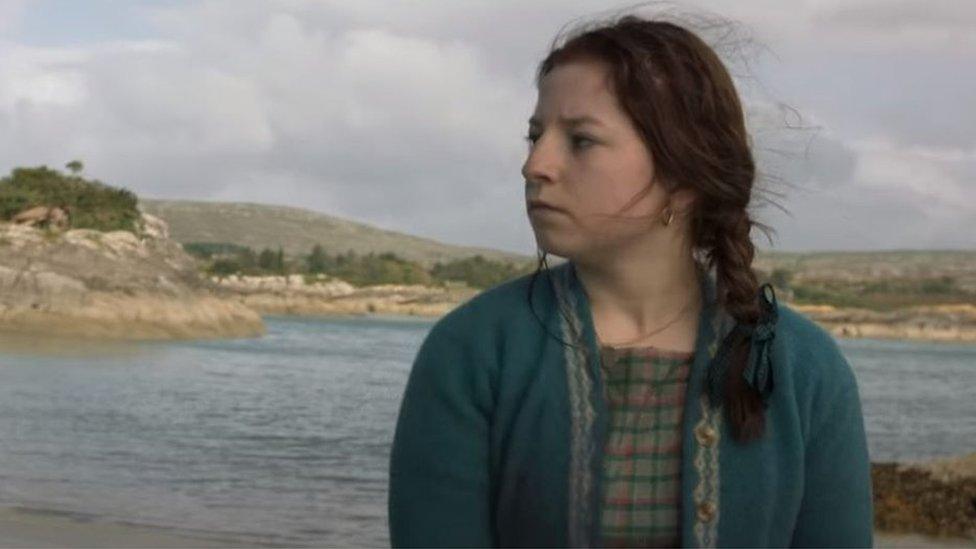
Float Like a Butterfly tells the story of 15-year-old Frances and her efforts to emulate her idol Muhammad Ali
She told BBC News NI there there had been consultation and collaboration with Travellers throughout the development and production process, which involved working with Traveller human rights activist Catherine Joyce.
Ms Winters said the Cork-based Traveller Visibility Group helped with casting, and that beyond the main roles there were "a lot of other Traveller actors in the film, particular young Travellers, and not always playing Travellers".
"Cultural exclusion wounds and cultural participation heals and, I believe, is the benchmark of real citizenship," Ms Winters told BBC News NI.
"I think the settled-Traveller collaboration in the making of Float Like A Butterfly was respectful and mutually enlightening.
"I could see a lot of social healing discretely happening on set and in pre-production."
She added: "That was what I hoped would happen in cinemas afterwards when Traveller and settled audiences would witness the film together in its depiction of a girl's fight to overcome the wounds of racism and its consequences in her family."
In recent years Irish actor and activist John Connors has also spoken of discrimination he faced at the start of his career due to his upbringing as an Irish Traveller.
The 28-year-old is best known for his role as Patrick Ward in the Irish TV show Love/Hate.
Related topics
- Published29 June 2020
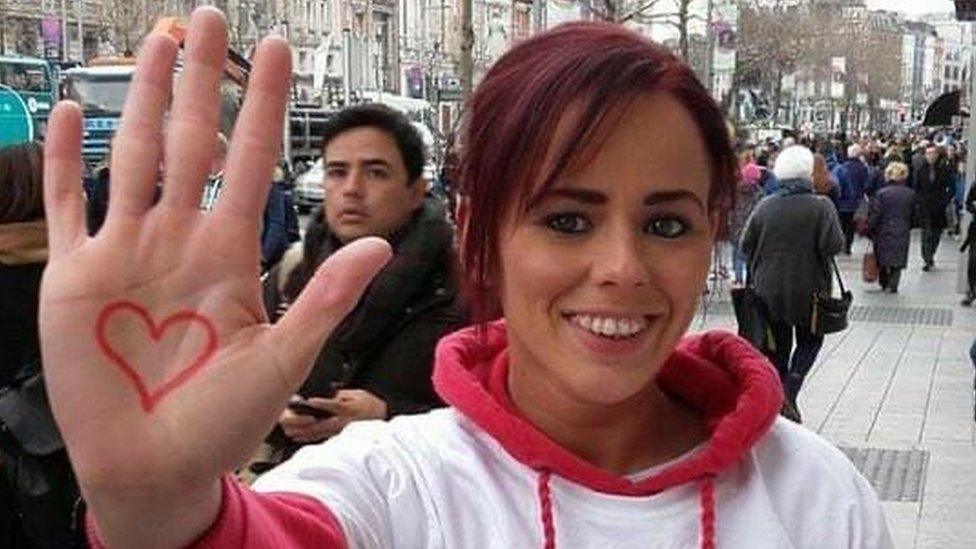
- Published9 August 2018
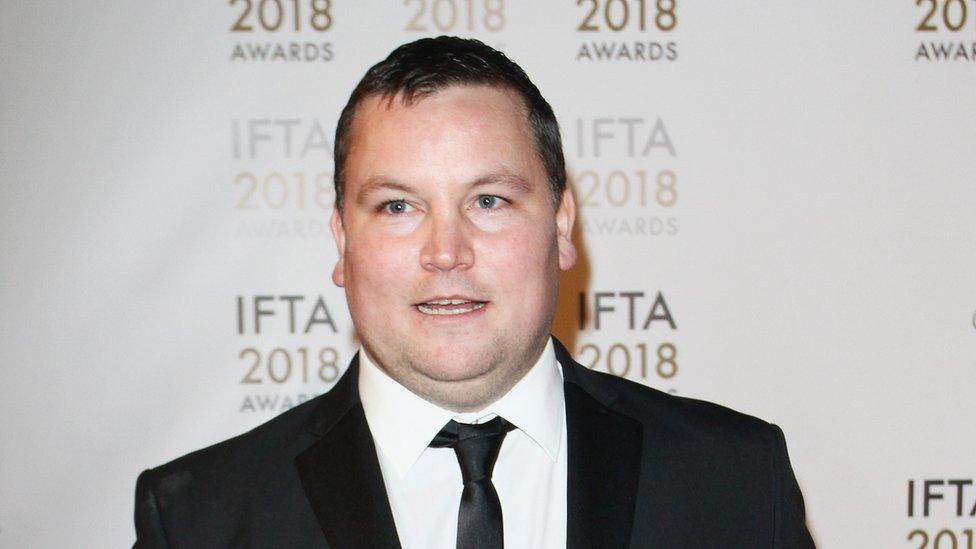
- Published22 June 2020
